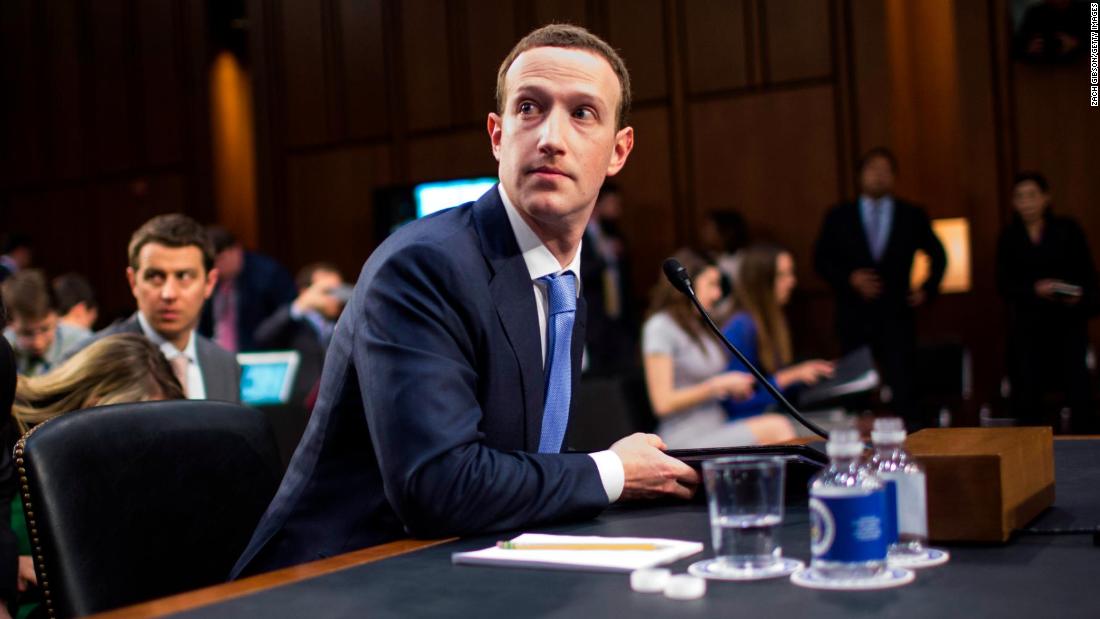Facebook content control policies criticized 0:56
(CNN Business) -
The question of whether former President Donald Trump should be allowed to return to Facebook is the largest, most controversial and controversial content moderation decision the company has ever made.
So who is going to make the decision?
Well, surprisingly, not the founder and CEO of the company, Mark Zuckerberg.
Instead, the decision will be made by Facebook's Oversight Board, an independent body that is often described as something of a Facebook Supreme Court.
The board's decision will be released Wednesday.
If the idea of a Supreme Court for a social network leaves you with a lot of questions, well, you are not the only one.
Here are some frequently asked questions and answers about the meeting to help you get up to speed.
What is the Facebook Oversight Board?
The board is an independent entity, similar to a court, to appeal content decisions on platforms owned by Facebook.
It is made up of 20 experts in areas such as freedom of expression, human rights and journalism.
Content moderation decisions - for example, to remove or not to remove a particular post - made by Facebook and Instagram can be appealed to the board once users have completed the internal company review process.
Facebook says the decisions made by the board are final.
Facebook first announced its intention to form an independent entity to review content decisions in November 2018. After some delay, the company announced in October 2020 that the board would begin hearing cases.
advertising
Restrepo: With Trump, «USA.
I was on the precipice of an autocracy »
Who is on the board?
The current 20 board members include notable individuals from around the world, including Helle Thorning-Schmidt, former prime minister of Denmark;
Alan Rusbridger, former editor-in-chief of
The Guardian
;
and Tawakkol Karman, a Nobel Peace Prize winner who promoted non-violent change in Yemen during the Arab Spring, a movement in which social media played an important role.
But the board will only do what Facebook wants, right?
No. The board is designed to be independent from Facebook, in accordance with its charter.
Facebook funds a trust that, in turn, funds the board.
The trustees are "responsible for safeguarding the independence" of the board.
Critics of the company argue that the board is not truly independent and is a "body paid by Facebook, appointed by Facebook, created by Facebook, used to whitewash its most politically sensitive decisions."
Suzanne Nossel, a member of Facebook's Oversight Board and CEO of the free speech organization PEN America, told CNN Business last week: “Obviously, Facebook has its own motivations on this.
Let's be clear.
They are a for-profit company.
They wouldn't have done this if they didn't think it's good for business.
They have taken some steps to put money into a trust and create an independent group of trustees to oversee the board itself.
So there are some efforts to make it genuinely independent.
"Whether they go far enough, if circumstances arise that prove or challenge those parameters, we will have to see, but I think it is crucial, if the board is going to play any kind of useful role, that that independence is absolutely respected," he added. .
Some, perhaps many, decisions the board makes may ultimately not be what Facebook would want, or could put the company in awkward positions.
But regardless of the board's rules, Facebook benefits from some coverage on the toughest content issues.
Does Facebook have to do what the board says?
A decision made by the board "will be binding and Facebook will implement it immediately, unless the implementation of a resolution may violate the law," according to the board's bylaws.
Let's remember, what happened to Trump's Facebook account?
Trump was cut off access to his Facebook-owned Facebook and Instagram accounts on January 7, a day after the deadly insurrection in Washington.
Zuckerberg wrote at the time: "We believe that the risks of allowing the President to continue to use our service during this period are simply too great."
What happens after the board makes a decision on Trump's Facebook account?
The board's decision will be announced at 9 am ET on Wednesday.
The board's decision on whether Trump should be allowed to return to the platform is supposed to be binding, meaning Facebook is supposed to take the action.
The board will post its decision on its website along with an explanation of how it made the decision.
However, it will not make public who on the board voted in which direction;
board members should also not disclose that information themselves.
The board says it received more than 9,000 public responses on what to do with Trump's account, and is expected to release a sample of those responses as well.
Disinformation dropped dramatically after Twitter suspended Trump's account, specialist says
What cases has the board taken before this?
In its first series of rulings in January, the board overturned some decisions Facebook had made.
In one case, Facebook removed a post by a user in Myanmar who had shared two photos of an ethnic Kurdish Syrian child who drowned while trying to reach Europe in 2015. Text accompanying the photo, according to the board's description He said there was "something wrong with Muslims (or Muslim men) psychologically or with their way of thinking."
(Rohingya Muslims have been persecuted in Myanmar).
Facebook removed the post due to its hate speech policies.
The board overruled that decision.
In an explanation of the decision posted on its website, the board said: “Although the post could be considered pejorative or offensive towards Muslims, it did not promote hatred or intentionally incite any form of imminent harm.
As such, the board does not consider their removal necessary to protect the rights of others. "
You can read the full decisions here.
- Brian Fung and Kaya Yurieff contributed reporting.

